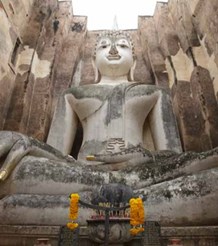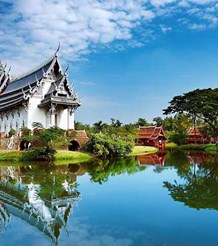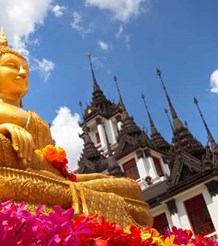
Demand Remains High for Thai Real Estate
Despite the sluggish economy, demand for real estate remains strong in Thailand with the nation currently leading the region in the hotel residence boom, the property investor's vehicle of choice in 2015.
Economists predict the real estate market will grow by 5%-10% this year after receiving a boost from the government's property stimulus measures, implemented to stimulate interest from property buyers overseas.
The stimulus measures include reductions in housing transfer and mortgage fees, personal income tax deductions for those purchasing a property for less than €75,000 and soft loans amounting to €250,000 offered by Thailand's Government Housing Bank, (GH Bank).
Last Tuesday, the cabinet approved cuts in housing transfer and mortgage fees to 0.01% each for six months for homes priced at €75,000 or less, down from 2% and 1% respectively. Also approved was a proposal allowing first-time buyers who purchase a home below the same threshold to deduct 20% of the value of the home from their annual personal income tax over a five-year period.
The cuts will take effect this month for both new and resale properties in Thailand.
Thai Condominium Association president Prasert Taedullayasatit said the tax incentives, if they took effect this month, would boost the overall housing market in the fourth quarter by 20%-30%, boosting full-year housing market values 12.6% from last year.
Investment in hotel residences has surged in Thailand in 2015, with many opportunities falling well below the new threshold for tax incentives. The sector has a significantly improved outlook on the back of the Thai government's stimulus measures and construction has been stepping up to meet rapidly increasing demand for robust, income-generating assets in branded hotels.
According to new research by Thai-based hospitality consulting group C9 Hotelworks, there are currently more than 28,000 hotel-branded residential units for sale across the region overall, representing almost 120 projects. In Thailand, there are 44 developments on the market, representing 4,775 units, with the top three locations for hotel residences being Phuket, Bangkok and Pattaya.
The average price per square metre for urban properties in Thailand is €5,960, while in resort destinations it is €3,283. One key catalyst for the rising tide of buyer interest has been an increasing number of mixed-use projects that contain hotel and real estate components. Recognised hotel brands are being tapped to help engineer pricing premiums for property sales, which in market-wide terms has equated to 26% in urban locations and 14% for resort products.
Commenting on the research, C9 managing director Bill Barnett said: "The historic pattern of hotel and real estate marriages has moved away from the beach and leisure destinations and is gaining traction in urban city offerings. Traditional lifestyle buyers are being supplanted by end users, with Asians representing the largest transaction segment. Bangkok's stirring success story at the St Regis Residences demonstrated this, while the more recent Four Seasons offering has struck a chord with both local and overseas buyers".
The two leading Southeast Asian real estate marketplaces are Thailand, offering 37% of the region's hotel project residences, followed by Indonesia with a 22% share.






